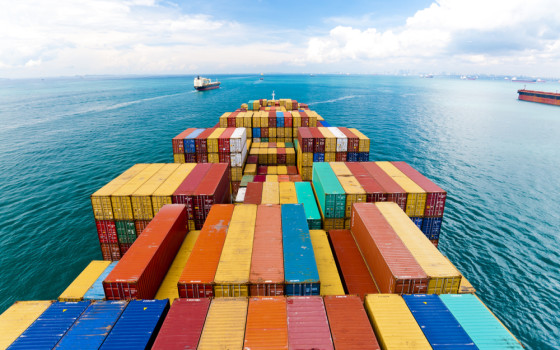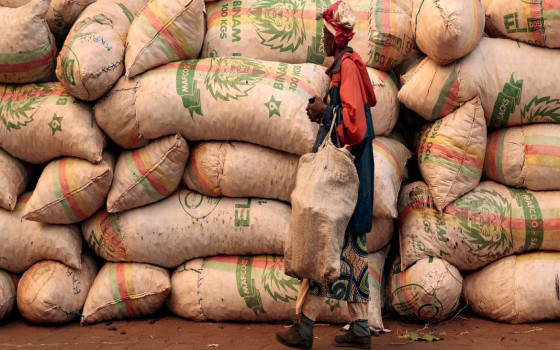An international warning about the slowdown in global economic growth. The debt burden must be resolved. Europe is on the verge of recession

- Europe and Arabs
- Thursday , 5 October 2023 15:15 PM GMT
New York - Brussels: Europe and the Arabs
The United Nations Conference on Trade and Development (UNCTAD) warned that global economic growth will slow this year compared to last year, with little indications of a recovery over the next year.
According to what was stated in the daily United Nations news bulletin, a copy of which we received this Thursday morning, it also stated, “Yesterday, Wednesday, UNCTAD published its report on trade and development for the year 2023, indicating that global economic growth will slow from 3 percent in 2022 to 2.4 percent in 100 in 2023.
He stressed the need to carry out institutional reforms to the global financial structure, and adopt more practical policies to address inflation, inequality and sovereign debt, as well as stronger supervision of major markets.
The report called for a change in policy direction - including the policies of major central banks - and to be accompanied by institutional reforms pledged during the Covid-19 crisis.
UNCTAD Secretary-General Rebecca Greenspan stressed the need to avoid the mistakes of past policies and adopt a positive plan for reform in order to protect the global economy from future structural crises.
“We need a balanced mix of fiscal and monetary policies to achieve financial sustainability, promote productive investment, and create better jobs,” she continued. “Regulation must address the deep inequalities in the international trade and financial system.”
Variations in recovery globally
The global economy is at a crossroads, with diverging growth trajectories, rising inequality and rising debt burdens casting a shadow over its future.
The report highlights these important issues and stresses the urgent need to address them.
Globally, the post-pandemic recovery is mixed. While some economies - including the United States, Japan, China, Brazil, Mexico, India and Russia - have shown resilience in 2023, others face enormous challenges.
This discrepancy raises concerns about the future of the global economy.
As for Europe, it is on the brink of recession, struggling with rapid monetary policy tightening and strong economic headwinds, with major economies slowing and Germany already shrinking.
The report attributed the decline in growth in Europe to the stagnation or decline in real wages across the continent, in addition to fiscal austerity.
Growing inequality and weak growth
Variation in economic performance poses a major challenge, according to the report, with developing countries suffering disproportionately - including from the effects of monetary policy tightening in advanced economies. The widening wealth gap threatens to undermine the fragile economic recovery and countries’ aspirations to achieve sustainable development goals.
Debt burdens remain a major concern for many developing countries. High interest rates, weak currencies, and slowing export growth have combined to put pressure on fiscal space to meet basic needs, turning increasing debt servicing burdens into an unfolding development crisis, according to the report.
The report stressed the need to take urgent measures to prevent more countries from reaching the brink of financial distress, or worse, sliding into default.
A call for more balanced policies
To address these multifaceted challenges, UNCTAD's Trade and Development Report 2023 calls for a more balanced mix of fiscal and monetary policies. Coordination is needed between national and supranational authorities to manage inflationary pressures, ensure price stability, promote an enabling environment for investment-led growth, and implement measures to reduce income inequality, improve real wages, and strengthen social protection systems.
The report stressed the importance of ensuring long-term financial sustainability, calling for expanding the role of central banks beyond inflation targeting to include a broader focus on long-term economic sustainability.
The need for urgent multilateral solutions
The report noted that addressing the debt issue is crucial, “because too many developing countries are burdened by debt burdens due to a combination of high interest rates, weak currencies, and heavy conditions.”
The United Nations Conference on Trade and Development (UNCTAD) called for meaningful reforms to the rules and practices of the international financial architecture, and to provide fair and timely solutions to manage debt crises. The goal is to ensure that these crises do not lead to a setback in progress and development.














No Comments Found